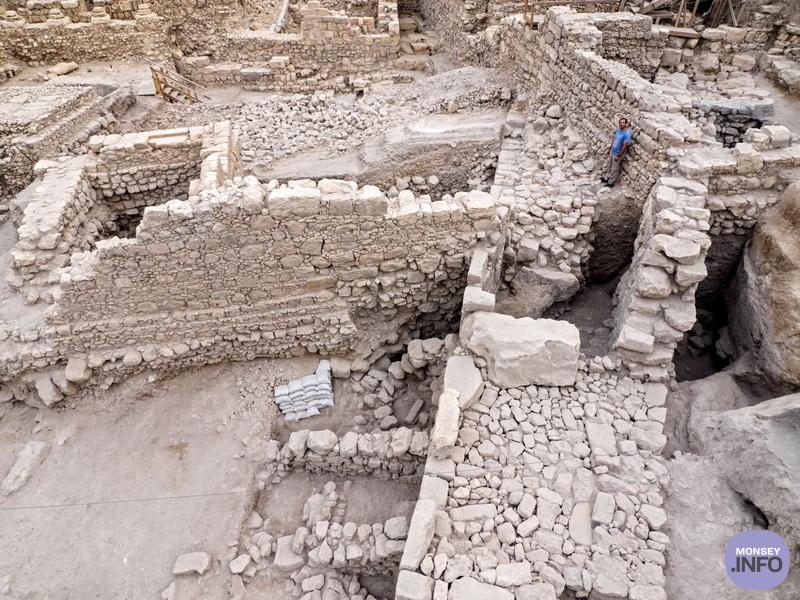
Who Is “Hyrcanus” Whose Name Was Engraved in Hebrew on a Stone Bowl in Jerusalem 2,100 Years Ago?
In 2015, a fragment of a chalk or soft limestone bowl was unearthed in the Israel Antiquities Authority archaeological excavation in the City of David Givʽati Parking Lot in the Jerusalem Walls National Park. The vessel was published and immediately aroused the curiosity of researchers.
According to Israel Antiquities Authority archaeologist, Dr. Doron Ben-Ami, and Professor Esther Eshel of Bar-Ilan University, “This is one of the earliest chalk vessels to appear in Jerusalem, such stone vessels were used extensively by Jews as they were considered unsusceptible to ritual impurity.”
Was the Hyrcanus, whose name was engraved on the bowl, a high-ranking person, or perhaps simply an ordinary citizen living in the Hasmonean period? According to the researchers, it is difficult to be certain. “The name Hyrcanus was fairly common in the Hasmonean period,” say Dr. Ben-Ami and Prof. Eshel. “We know of two people from this period who bore this name: John Hyrcanus, the grandson of Matityahu the Hasmonean, who ruled Judea from 135–104 BCE, and John Hyrcanus II, the son of Alexander Jannaeus and Salome Alexandra; hence, an attempt to identify the Hyrcanus on the Givʽati Parking Lot bowl fragment with a specific Hasmonean Dynasty leader is, at best, conjectural.”
In the past, the City of David Givʽati Parking Lot excavations have yielded architectural remains of the Greek Seleucid ‘Akra’—the famous fortress built by Antiochus IV Epiphanes to control the city of Jerusalem and to monitor the activity in the Temple. The fortress was eventually conquered by the Hasmoneans. Interestingly, the incised bowl was found a short distance from the building remains of the Akra, and, according to the researchers, this proximity may well suggest a connection between the bowl and the fortress.
So, the identity of the Hyrcanus engraved on the bowl remains a mystery…
Photos: Clara Amit and Asaf Peretz, Israel Antiquities Authority.











